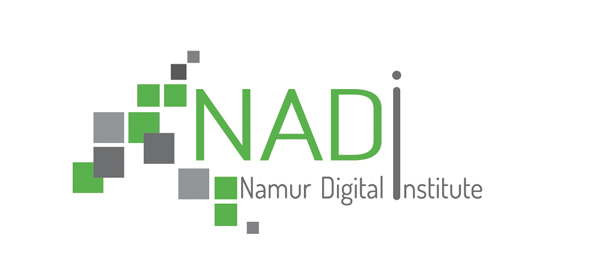Programme
Session 1 – Inaugural LECTURE
“Big Data Analytics for Business – Findings, Challenges and Opportunities”
Tuesday 20/3 • 17:00-18:45 (E01 - Adam Smith - ground floor)
-
Welcome by Prof. Dr. P. Zidda, Head of the Department of Business Administration
-
Introduction by Prof. Dr. N. Habra, Rector of the University of Namur
-
Inaugural lecture by Prof. Dr. D. Van den Poel
-
Cocktail
The inaugural lecture will start with an introduction to Data Analytics for Business, which includes descriptive, predictive and prescriptive analytics as well as a brief intro into Big Data. We then make the case why both reinforce each other. The increasing availability of different kinds of data allows for improvements to predictive models: audio, images, video, network data, … . Next, we illustrate how Big Data Analytics improves business results. Examples in the realm of analytical Customer Relationship Management, credit scoring, design of optimal retail networks, human resources, and the interface with logistics will be provided. We also venture into streaming analytics (as opposed to traditional batch analytics). We also discuss the many challenges.
Session 2
“Analytical Customer Relationship Management”
Wednesday 28/3 • 9:30-12:30 (E13 - 1st floor)
Analytical CRM (Customer Relationship Management) is about modeling the dynamics of the customer list: 1. customer acquisition, 2. churn, 3. upsell/cross-sell, and 4. win-back modeling. We discuss all four aspects in detail. E.g., in customer acquisition, we want to predict whether a prospect will have a high probability of becoming a customer even before contacting the person or business. But customer management is continuing to change (from transaction to relationship), now with a customer engagement orientation.
Session 3
“Methodology: Feature Engineering, Predictive Modeling, Classification”
Wednesday 18/4 • 9:30-12:30 (E13 - 1st floor)
In this methodological session, we discuss different techniques for predictive modeling. One of the most underappreciated activities in the entire modeling process (e.g., CRISP-DM) is compiling a list of predictors, also known as “Feature Engineering”. In general, investing additional efforts in collecting data to build better features is more important than looking for the best predictive model. Moreover, we discuss how to identify the most valuable features. We wrap up the session by discussing how Deep Learning might revolutionize feature engineering.
Session 4
"Social Network Analysis”
Wednesday 25/4; 9:30-12:30 (E13 - 1st floor)
Social Network Analysis (SNA) is the process of investigating social structures through the use of networks and graph theory. In an ever-increasing competitive environment, any source of additional data may lead to a competitive advantage. Today’s omnipresence of social media provides marketers with a great source of network data. What sensors are doing for electronic data capture, social media are doing for (inter)personal interactions. In networks such as Facebook, Twitter, Instagram, Snapchat, Pinterest opinion leaders self-identify themselves.
We illustrate the concepts with R packages for SNA: igraph and statnet.
Session 5
“Big Data Technology: Spark”
Wednesday 2/5; 9:30-12:30 (E13 - 1st floor)
With the increasing realization that Moore’s law is slowing down or even coming to a halt, a new computing paradigm is needed. To cope with today’s huge data volumes, we move from single-threaded to parallel computing in Big Data. Several alternative open-source middleware software projects enjoy increasing popularity. We will focus on Apache Spark in this session because of its Spark SQL and machine learning components. We discuss the concept of pipelines. Moreover, streaming analytics in Spark Streaming (as opposed to traditional batch analytics) will be discussed.
Participation is free but registration is mandatory











